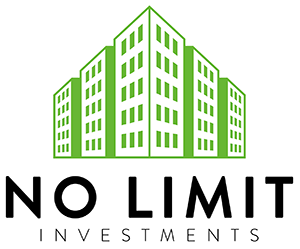What Are Investor Loans and Why Should First-Time Buyers Care?
Investor loans are financial products designed for individuals who want to purchase properties not just for living in but also for generating income. For first-time buyers, these loans might feel intimidating because they differ from the typical primary residence mortgage. Yet, they open doors to opportunities that can accelerate the journey toward financial independence and wealth building.
Investor loans allow you to:
- Purchase a property with the intent of renting it out.
- Buy, improve, and sell properties for profit.
- Leverage property income instead of only your personal salary to qualify.
- Access financing options tailored for investment strategies like Fix & Flip or BRRRR.
For a first-time buyer, this means your first property could become more than a home — it could be an asset that works for you financially.
How Do DSCR Loans Fit Into the Picture for First-Time Buyers?
One of the most popular forms of investor loans is the DSCR loan (Debt Service Coverage Ratio). Instead of relying solely on your job income, DSCR loans use the property’s rental income to qualify you.
This matters for first-time buyers because:
- You may not have years of documented income or perfect credit history.
- Rental projections can carry weight when applying for the loan.
- A DSCR loan evaluates whether the property’s income covers expenses such as mortgage, taxes, and insurance.
If the rent is expected to cover the debt, the lender may be more flexible, which can give you access to financing when traditional routes are blocked.
What Other Investor Loan Options Exist for First-Time Buyers?
Beyond DSCR loans, there are other financing options that may suit your situation. Each has its own risks and benefits.
- Fix & Flip Loans: Great for those willing to take on renovation projects. You buy a property, improve it, and sell it for profit.
- Buy & Hold Mortgages: Designed for long-term investors who want to rent out property while building equity.
- BRRRR Financing: Buy, Rehab, Rent, Refinance, Repeat. A strategy to recycle capital and grow your portfolio over time.
- Cash Out Refinance: Once you’ve built equity, you can refinance and pull cash out to fund other investments or cover expenses.
- New Construction Loans: Useful if you want to build new rather than buy existing property.
- Real Estate Financing Solutions: Tailored approaches that help you match your specific goals with the right financing.
For first-time buyers, the choice depends on your goals. Do you want steady cash flow? A quick profit? Or a scalable system for long-term wealth?
What Are the Requirements and Challenges of Investor Loans?
Investor loans are more demanding than traditional mortgages. Here’s what you can expect:
- Higher down payments, often 15–25% or more.
- Stricter credit score requirements compared to some first-time homebuyer programs.
- Documentation of projected rental income or renovation plans.
- Sometimes a proven track record of similar investments, especially for larger or riskier loans.
Challenges for first-time buyers include:
- Coming up with the larger upfront costs.
- Managing the risks of vacancies, cost overruns, or market downturns.
- Navigating a more complex approval process.
How Can No Limit Investments’ Services Help First-Time Buyers?
First-time buyers often need guidance and tailored solutions. This is where specialized services come in. No Limit Investments offers a variety of financing options that align directly with common first-time investor goals:
- Fix & Flip Loans for those looking to profit from renovations.
- Buy & Hold Mortgages for buyers who want to rent their first property long-term.
- BRRRR Financing for those who want to grow beyond just one property.
- Cash Out Refinance for accessing built-up equity down the road.
- DSCR Loans to qualify using rental income rather than traditional job income.
- New Construction Loans for building from the ground up.
- Real Estate Financing Solutions to provide flexibility and guidance for unique situations.
Incorporating these services naturally into your plan makes it easier to start as a first-time buyer while thinking like a long-term investor.
What Steps Should You Take Before Applying for an Investor Loan?
Preparation is key. First-time buyers should take the following steps before starting an application:
- Check and improve your credit score. Pay down debt and correct errors.
- Save for the down payment and reserves. Have enough to cover upfront costs and unexpected expenses.
- Estimate your costs realistically. Include purchase price, repairs, taxes, and insurance.
- Research rental income carefully. Look at comparable properties, occupancy rates, and market demand.
- Plan your exit strategy. Decide whether you want to flip, rent, refinance, or scale into more properties.
Being thorough reduces surprises and strengthens your application.
How Do Investor Loan Terms Differ from Traditional Mortgages?
Investor loans have different terms compared to first-time homebuyer mortgages. You should be aware of these distinctions:
- Down payments are higher, often starting at 15–20%.
- Interest rates are usually higher due to increased risk.
- Loan terms may vary, with shorter repayment periods for some products like Fix & Flip Loans.
- Approval is based on both your financial standing and the property’s income potential.
- Fees can be higher, including closing costs, appraisal fees, or loan origination fees.
Knowing these differences upfront helps set realistic expectations.
When Does It Make Sense for First-Time Buyers to Choose Investor Loans?
Investor loans aren’t right for everyone, but they can be powerful tools in specific situations. They make sense if you:
- Plan to rent out part of your first property, like a duplex or multi-family unit.
- Want to live in one unit while tenants help pay the mortgage.
- Are comfortable managing repairs, tenants, or contractors.
- Have saved enough to cover a higher down payment and reserves.
- Want to build equity quickly and potentially grow into more properties.
If you meet these conditions, investor loans can transform your first purchase into both a home and a wealth-building opportunity.
What Risks Should First-Time Buyers Be Aware Of?
Like all investments, investor loans carry risks. Being aware of them can help you prepare.
- Unexpected costs. Renovations, vacancies, or maintenance can eat into profits.
- Market shifts. Changes in rent demand or property values can affect cash flow.
- Financing risks. Higher interest rates or stricter loan terms can impact returns.
- Over-leveraging. Taking on too much debt too soon can create financial strain.
Mitigation strategies include:
- Building a strong cash reserve.
- Starting with a smaller, manageable property.
- Being conservative with rental projections.
- Partnering with an experienced lender who understands real estate investing.
What Should Your Next Step Be Toward Investor Loans?

If you believe investor loans align with your goals as a first-time buyer, the next step is to connect with a lender who can guide you through the process.
That’s where No Limit Investments comes in. They specialize in helping first-time buyers and investors access tailored financing, whether that means Fix & Flip Loans, Buy & Hold Mortgages, BRRRR Financing, Cash Out Refinance, DSCR Loans, New Construction Loans, or other Real Estate Financing Solutions.
Take action today by visiting No Limit Investments. The right financing partner can make your first purchase both a home and an investment in your future. Call now!
Final Thoughts
Investor loans for first-time buyers offer both opportunities and challenges. They can provide pathways to build equity, generate rental income, and grow wealth, but they also demand preparation, risk awareness, and the right financing partner.
By planning carefully, understanding your options, and working with a trusted provider like No Limit Investments, your first property purchase can become the foundation for long-term success.
Works Cited
“DSCR Loans: What it is, Expert Advice & How to Apply (2025).” Griffin Funding. Accessed 2025.
“Debt Service Coverage Ratio (DSCR) Home Loans.” Capital Home Mortgage. Accessed 2025.
“What Is a DSCR Loan?” CrossCountry Mortgage. Accessed 2024.
“How Investment Property Loans Work.” Midlands Bank. Accessed 2025.
“Investor Cash Flow DSCR Loans – Qualify Using Rental Income Instead of Tax Returns.” The Mortgage Firm. Accessed 2025.
“Investment Property Loans: Discover the Financing Possibilities.” Supreme Lending. Accessed 2024.
Frequently Asked Questions (FAQs)
- Can first-time buyers really qualify for investor loans?
Yes. While requirements may be stricter than standard mortgages, first-time buyers can qualify if they meet credit, income, and down payment standards. DSCR loans, in particular, make it possible to qualify using projected rental income. - What is the minimum down payment for investor loans?
Investor loans usually require higher down payments than first-time homebuyer mortgages. Expect to bring 15–25% of the purchase price, depending on the loan type and property risk. - Are investor loans riskier than traditional mortgages?
They can be. Risks include higher interest rates, potential vacancies, or unexpected repair costs. With preparation, reserves, and the right loan type, you can reduce those risks and still benefit from long-term gains. - Which investor loan option is best for beginners?
It depends on your goals. Fix & Flip Loans are best if you want short-term profit, Buy & Hold Mortgages if you want long-term rental income, and BRRRR Financing if you want to scale quickly. DSCR loans are especially useful if you want to qualify based on rental income. - How can No Limit Investments support me as a first-time buyer?
No Limit Investments offers services tailored to new and seasoned investors alike. Their programs include Fix & Flip Loans, Buy & Hold Mortgages, BRRRR Financing, Cash Out Refinance, DSCR Loans, New Construction Loans, and Real Estate Financing Solutions — all designed to help you succeed as a first-time buyer entering the world of real estate investment.







